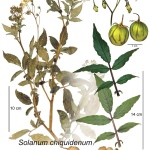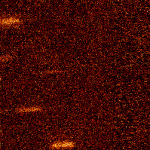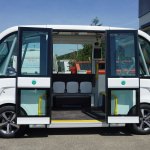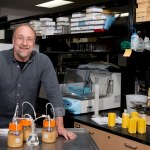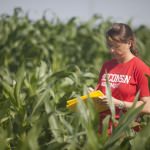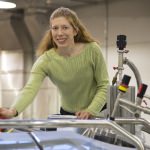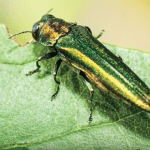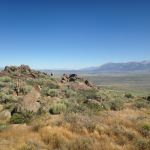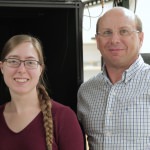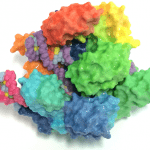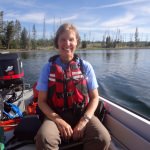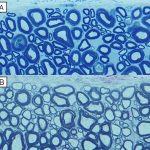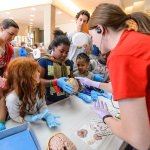Category Science & Technology
Valuable potato specimens transferred to Wisconsin State Herbarium
A large collection of potato specimens have been transferred from the U.S. Potato Genebank in Sturgeon Bay, Wisconsin, to the Wisconsin State Herbarium at UW–Madison, which has 1.3 million specimens. Read More
Unique driverless vehicle on display Nov. 15-18 in Madison
At an event Nov. 17 and 18 on the University of Wisconsin–Madison College of Engineering campus, visitors will have the opportunity to check out an autonomous car. Read More
New Arboretum director continues legacy of restoration, teaching
As fall slowly hardens to winter in Madison, part of Karen Oberhauser’s new job is to walk the trails of the UW–Madison Arboretum, getting a sense not just for the geography, but for the land itself. That’s because the land Oberhauser walks is now under her care. Read More
Molecular magnetism packs power with “messenger electron”
A UW–Madison lab has made a molecule that gains magnetic strength through an unusual way of controlling those spins, which could lead to a breakthrough in quantam computing. Read More
BuckySubmit helps with public access compliance at UW–Madison
A new submission service called BuckySubmit helps researchers follow federal regulations requiring public access to their manuscripts. Read More
New model reveals possibility of pumping antibiotics into bacteria
UW-Madison researchers have discovered that a cellular pump known to move drugs like antibiotics out of E. coli bacteria has the potential to bring them in as well, opening new lines of research into combating the bacteria. Read More
Dan Ludois, inventor of new electrostatic motor, named Moore Inventor Fellow
UW-Madison Professor Dan Ludois is a Moore Inventor Fellow and one step closer to bringing a potentially transformative invention into the world. Read More
Catching the Bug
The Big Ten Network program Forward Motion goes behind the bark with entomology Professor Chris Williamson to find out what you can do about the emerald ash borer, an invasive insect is threatening 700 million trees in Wisconsin. Are yours among them? Read More
All hands on deck to understand, predict, prevent abrupt ecological change
“It’s a generally thorny problem and we are often scrambling to react,” says lead principal investigator Monica Turner. “In fact, understanding abrupt change in ecological systems is among the biggest challenges in contemporary ecology.” Read More
Communication and policy the focus of two science festival events
Two mini-symposia held during the Wisconsin Science Festival will teach early career scientists and nonscientists alike the value of sharing research broadly and how science interacts with and influences governmental policies. Read More
New course brings storytelling techniques to science
A new course teaches early-career scientists how to communicate their work outside of the lab, and is designed to turn real research into engaging stories, visuals and presentations. Read More

